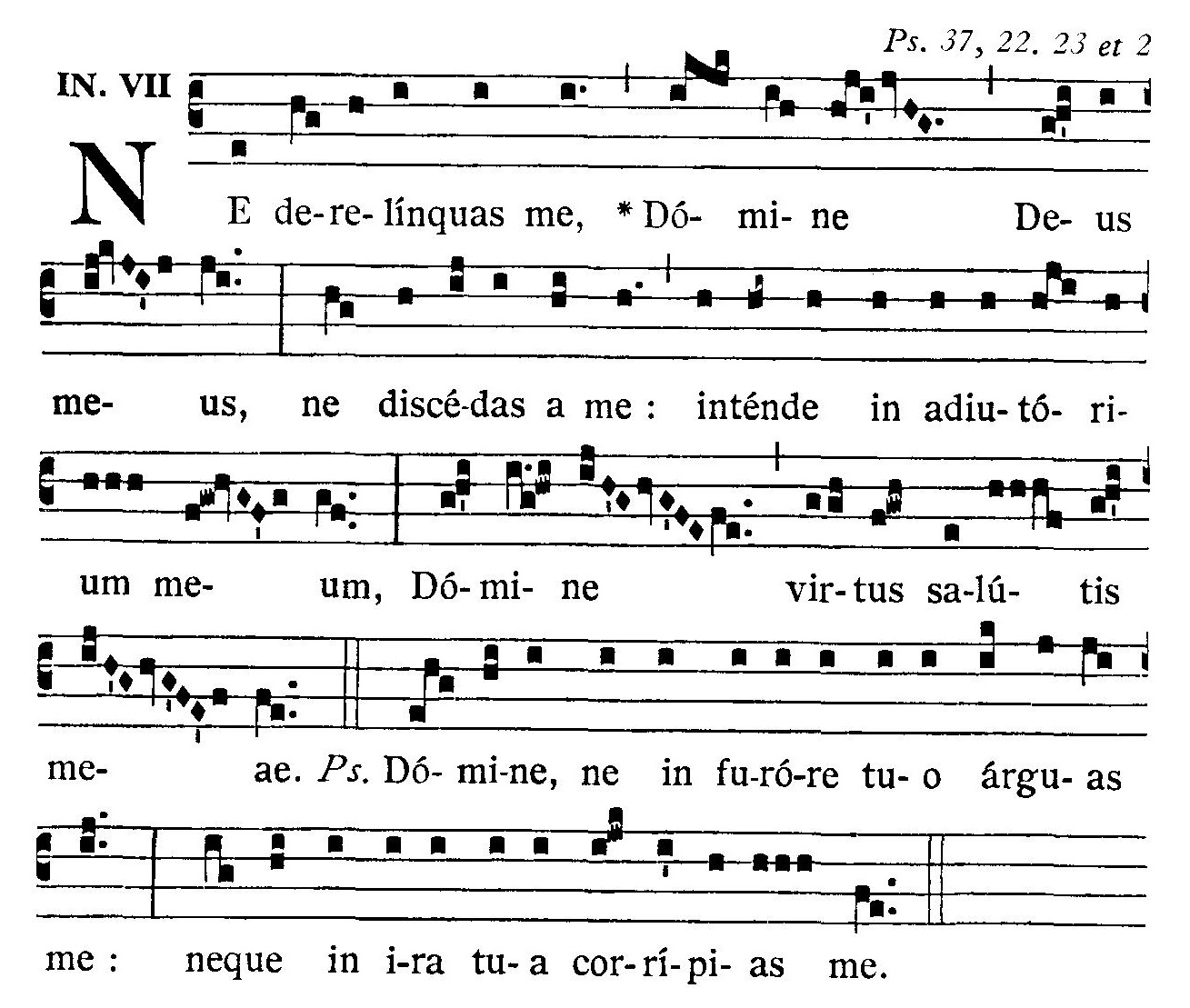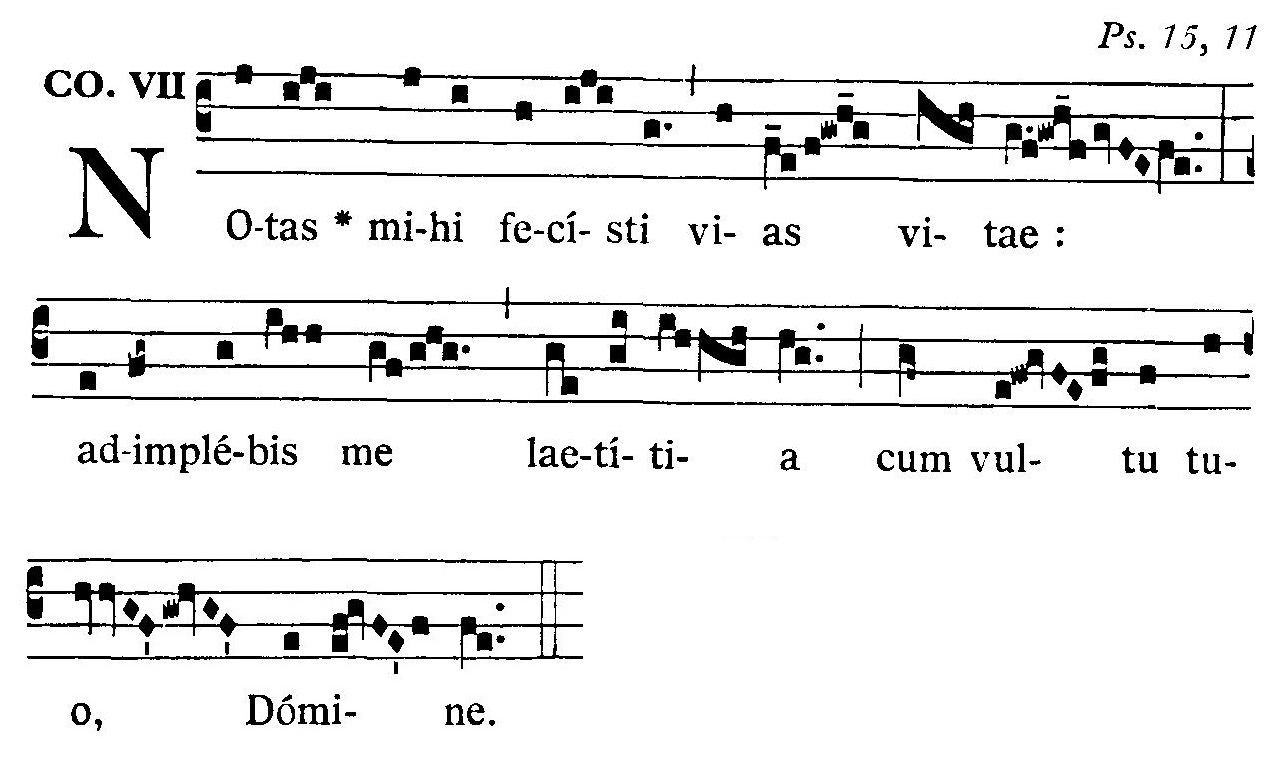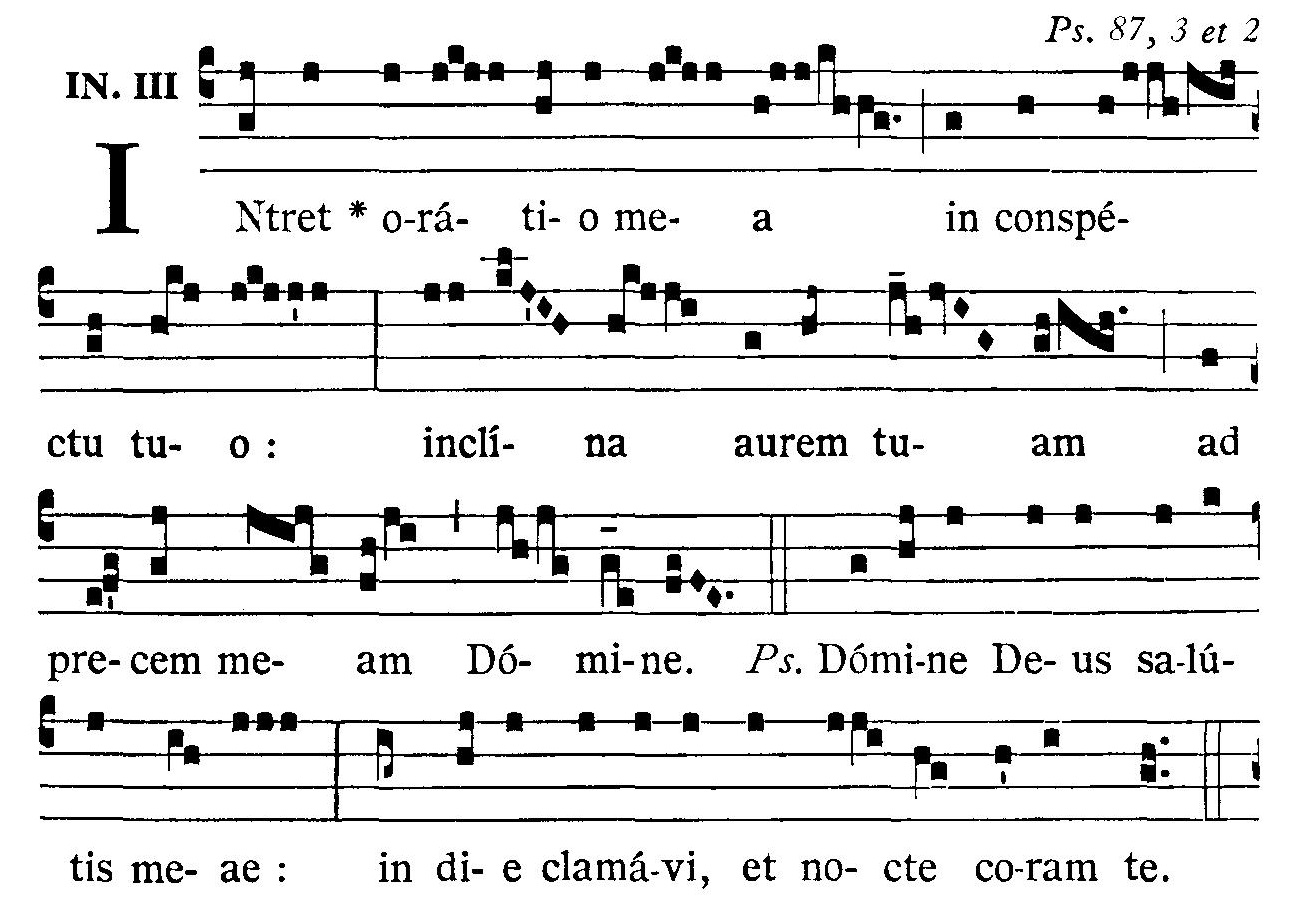Ant. ad introitum Cf. Ps 37, 22-23
Ne derelínquas me, Dómine Deus meus,
ne discédas a me; inténde in adiutórium meum,
Dómine, virtus salútis meæ.

Collecta
Omnípotens et miséricors Deus, de cuius múnere venit,
ut tibi a fidélibus tuis digne et laudabíliter serviátur,
tríbue, quǽsumus, nobis,
ut ad promissiónes tuas sine offensióne currámus.
Per Dóminum.
Super oblata
Fiat hoc sacrifícium, Dómine, oblátio tibi munda,
et nobis misericórdiæ tuæ sancta largítio.
Per Christum.
Ant. ad communionem Cf. Ps 15, 11
Notas mihi fecísti vias vitæ,
adimplébis me lætítia cum vultu tuo, Dómine.

Vel: Io 6, 58
Sicut misit me vivens Pater, et ego vivo propter Patrem,
et qui mandúcat me, et ipse vivet propter me,
dicit Dóminus.
Post communionem
Augeátur in nobis, quǽsumus, Dómine,
tuæ virtútis operátio,
ut, refécti cæléstibus sacraméntis,
ad eórum promíssa capiénda tuo múnere præparémur.
Per Christum.
© Copyright – Libreria Editrice Vaticana
Messalino in PDF con letture in lingua italiana (da stampare su fogli A3 fronte/retro)
Missalette in PDF with readings in English (to be printed on A3 sheets, front/back)




